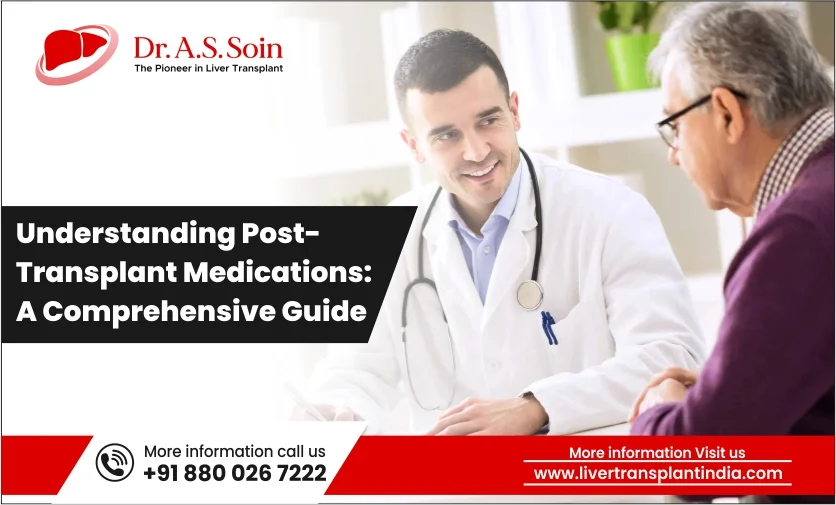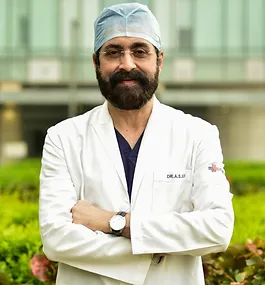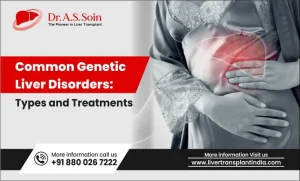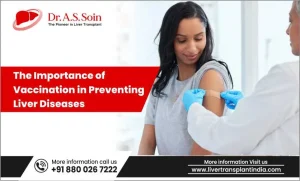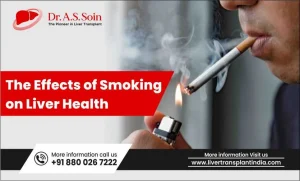Post-liver transplant medications are crucial for ensuring optimal recovery and long-term health for patients. After undergoing a liver transplant, a variety of medications are required to prevent organ rejection and maintain overall well-being. At Medanta-The Medicity, led by Dr. AS Soin, a leading liver transplant surgeon in Gurugram, each patient receives a personalized medication plan based on their specific needs. With extensive experience and an outstanding success rate, Dr. Soin and his team ensure that patients are well-informed about their medication regimen and emphasize regular follow-ups for ongoing monitoring and adjustment of medications.
This guide aims to help patients navigate the complexities of post-transplant medications and promote a healthier lifestyle following surgery. Understanding the role of each medication and the importance of adherence can significantly enhance a patient’s quality of life and the longevity of their transplant.
Table of Contents
ToggleWhat Are Post-Liver Transplant Medications?
Post-liver transplant medications are essential to prevent the body from rejecting the new liver and to maintain its function. The immune system often recognizes the transplanted liver as a foreign entity, and without medical intervention, it may attack the organ. To prevent this, immunosuppressive medications such as tacrolimus, cyclosporine, and mycophenolate mofetil are prescribed. These drugs suppress the immune system, striking a balance between preventing rejection and minimizing the risk of infections.
In addition to immunosuppressants, patients may require antiviral medications to manage or prevent viral infections, such as hepatitis B or C, which can compromise liver health. Other medications might include corticosteroids for inflammation control, and drugs to manage side effects like high blood pressure or diabetes, which can result from immunosuppressant therapy.
Regular follow-ups with a qualified liver transplant surgeon like Dr. AS Soin and his team are essential to monitor medication effectiveness, manage any side effects, and adjust dosages as needed for optimal health outcomes.
Key Categories of Post-Liver Transplant Medications
Post-liver transplant medications fall into several key categories:
- Immunosuppressants: These are crucial to prevent organ rejection. Common medications include tacrolimus, mycophenolate mofetil, and prednisone, all of which work by reducing immune system activity to allow the liver to function normally.
- Antibiotics: Antibiotics such as ciprofloxacin and trimethoprim-sulfamethoxazole may be prescribed to prevent bacterial infections, which is one of the most prominent risks after transplantation.
- Antivirals: Medications like acyclovir and ganciclovir help prevent/ treat viral infections, particularly hepatitis B and C, that could impact liver function post-transplant. These drugs are prescribed as per the protocol followed in the institute.
- Antifungals: Fluconazole and voriconazole are often prescribed to prevent fungal infections in immunocompromised patients.
- Supportive Care Medications: This category includes medications to manage bile production, blood pressure, pain, and other symptoms associated with liver transplantation or its side effects.
- Nutritional Supplements: Many patients require vitamins and mineral supplements to support healing and overall health during recovery.
Managing Post-Liver Transplant Medications Effectively
Effectively managing post-liver transplant medications is crucial for recovery and the prevention of complications. Patients should adhere to a strict medication schedule, noting names, dosages, and timing. Using medication organizers or digital reminders can help ensure doses are not missed, as this could lead to complications such as organ rejection.
Regular follow-up appointments with your liver transplant surgeon are essential. At Medanta, Dr. AS Soin and team ensures that each patient’s progress is monitored, blood tests are conducted, and medication dosages are adjusted as needed. Open communication with your medical team regarding side effects and concerns is key to effective management.
In addition to managing medications, maintaining a healthy lifestyle is important. This includes a balanced diet, regular physical activity, and avoiding harmful substances such as alcohol. Managing stress through mindfulness or counseling can further enhance recovery.
Promoting Long-Term Health After a Liver Transplant
Long-term health after a liver transplant involves adopting a balanced diet rich in fresh fruits, vegetables, lean proteins, and whole grains, while avoiding high-fat and high-sugar foods. Staying well-hydrated is essential for supporting liver function and detoxification.
Regular physical activity also plays a vital role in recovery. Light activities such as walking and stretching should be introduced gradually, with intensity increasing over time. Consulting a physical therapist for a personalized exercise plan can help improve both physical and mental well-being.
Ongoing medical follow-up is critical for monitoring liver function, adjusting medications, and addressing any health concerns. Dr. AS Soin’s expertise in liver transplantation ensures that patients receive comprehensive care throughout their recovery journey.
The Role of a Skilled Liver Transplant Surgeon in Medication Management
A skilled liver transplant surgeon is vital in managing post-transplant medications to achieve the best outcomes for patients. Key responsibilities include:
- Personalized Medication Plans: Surgeons create individualized medication regimens based on a patient’s medical history and specific needs.
- Monitoring for Rejection: Regular follow-ups allow the surgeon to monitor liver function and make timely adjustments to medications to prevent rejection.
- Patient Education: Educating patients about their medications ensures better compliance and understanding of potential side effects.
- Collaborative Care: The surgeon works closely with a multidisciplinary team to manage all aspects of recovery and medication management.
- Managing Side Effects: Adjustments are made to the medication regimen to minimize side effects and improve quality of life.
- Long-Term Care: A comprehensive care plan that includes lifestyle recommendations and ongoing medication management helps ensure long-term health and well-being.
Conclusion
Post-liver transplant medication management is crucial for ensuring a smooth recovery and maintaining long-term health. With guidance from experts like Dr. Soin at Medanta-The Medicity, patients can trust they are receiving the highest quality care. His extensive experience and commitment to patient well-being provide a reliable path to recovery.
FAQs
- How painful is recovery after a liver transplant?
Pain is common, especially around the incision site, but it can be managed with pain relievers. Most patients experience discomfort during the first few weeks, but it improves as healing progresses. - Why are immunosuppressants necessary after a liver transplant?
Immunosuppressants are required to prevent the body from rejecting the transplanted liver by reducing the immune system’s response. - When can I return to normal activities after a liver transplant?
Patients can typically resume light activities within 3-6 months. Heavy lifting and strenuous exercise should be avoided for up to a year. - How many pills will I need to take after a liver transplant?
The number of pills varies but often ranges between 10-15 daily in the early stages. This may reduce over time as recovery progresses. - What lifestyle habits promote long-term health after a liver transplant?
A healthy diet, regular physical activity, staying hydrated, and avoiding alcohol are all essential for promoting long-term health after a liver transplant.

